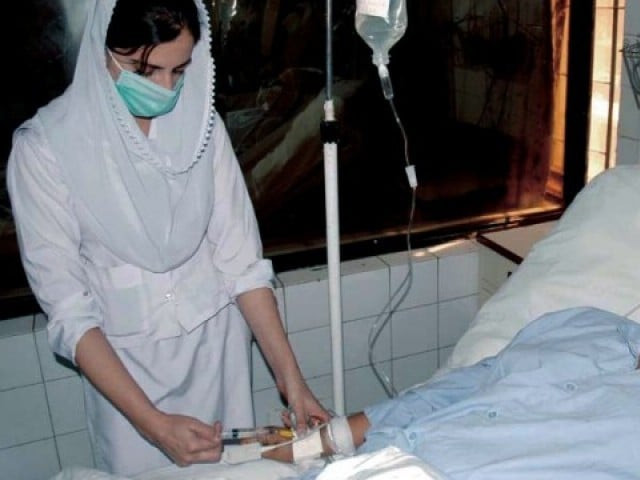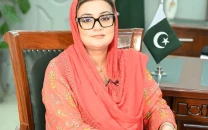Nursing: a tale of neglect and resilience
Practitioners call for adequate funding, better working conditions for nurses

Pakistan’s medical sector has largely been preoccupied with cure rather than care. The country continues to produce a large number of doctors every year, ignoring the nursing workforce, which is critical for healthcare as the spinal cord is for the human body.
Ujala Javed, a registered nurse at the Pakistan Nursing Council says “we have a lot of patients to take care of, and insufficient staff to handle them.
It’s a challenge to provide quality care when we’re stretched so thin.”
In developing countries like ours, nursing faces a unique set of challenges that make it more difficult to provide quality care and attract people to the profession.
Ujala goes on to say that nurses are often perceived as assistants to doctors, which is a misconception.
“Nurses are highly educated professionals who complete rigorous training and licensing requirements to be able to practise.”
She says they also have to have the required experience and knowledge that is essential for patient care, and their contributions should be acknowledged.
One of the biggest challenges the profession faces is the shortage of trained professionals. According to the World Health Organization (WHO), low, and middle-income countries will face a global shortage of 10 million health workers, including nurses, midwives, and doctors by 2030.
In Pakistan, the shortage of nurses is particularly acute, with a ratio of 1.5 nurses per 1,000 population, which is lower than the WHO’s minimum recommendation of 2.5 nurses per 1,000 population.
“Untrained nurses lack the necessary knowledge and expertise to provide quality patient care, and they may not even be aware of their limitations, said Ujala.
She added that the professionals may lack the necessary communication and interpersonal skills to effectively interact with patients and their families.
“Patient care requires not only technical knowledge but also empathy and compassion, which untrained nurses may not possess”, she maintained.
Moreover, practitioners opine that in many healthcare settings, nurses often find themselves taking on additional responsibilities to ensure that patients receive the care they need.
“This shortage has a significant impact on the quality of healthcare, thus making the nurses overwork and compromise on patient care,” they lament.
Professionals associated with the field say nurses are also asked to perform tasks that are outside of their scope of practice, such as performing procedures that require a physician’s expertise or making decisions that are typically reserved for doctors.
These situations can arise due to a lack of resources or staff, and it can put both the patient’s safety and the nurse’s license at risk.
According to the Ministry of National Health Services, Regulations, and Coordination, there were 127,050 registered nursing professionals which include 88,055 nurses, 16,449 lady health visitors, 16,057 midwives, 5,791 community midwives, and 698 certified nursing assistants as of 2022.
Khadija Muzzafar, a nurse by profession, said that the shortage of nurses in Pakistan is not a new issue, and it has been exacerbated by a lack of funding and resources for nursing education programmes.
She said that the situation is further complicated by the low salaries and poor working conditions that deter qualified nurses from entering or remaining in the profession.
To address the challenges faced by professionals in the country, it is very important to promote a positive image of nurses in the media.
Published in The Express Tribune, March 6th, 2023.



















COMMENTS
Comments are moderated and generally will be posted if they are on-topic and not abusive.
For more information, please see our Comments FAQ